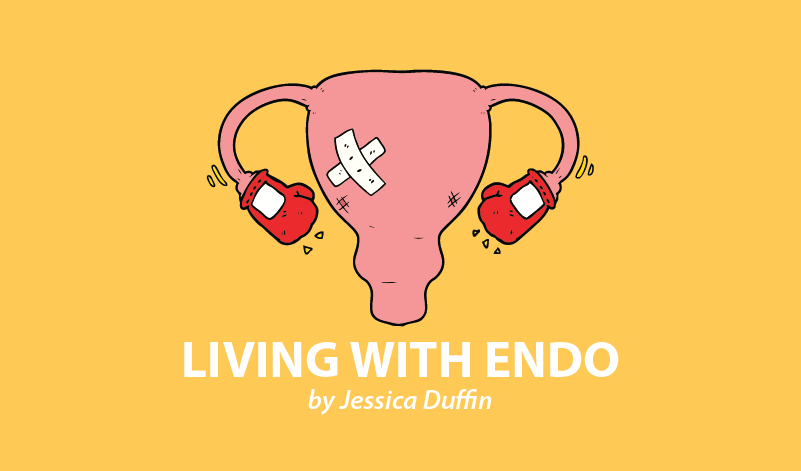
Family life. It’s complicated for the best of us, let alone those of us trying to navigate it with endometriosis.
I’m not as close to my family as others might be to theirs. I don’t see my family too often, and it’s my friends whom I call in a crisis. I don’t think it’s a bad thing or worthy of any kind of judgment, positive or negative. For various reasons, it’s just the way I am. Yet in the past few years, Instagram has, wondrously enough, opened up a new way for me to communicate life with endometriosis to my family members.
Years ago, my independent streak resulted in me choosing not to tell my family about my first surgery until the morning of. I had a boyfriend who was driving me, and I didn’t want to make a big scene. I lived at home, so I knew that not telling my mum at all wouldn’t really work, but I didn’t want the drama of having other people involved beforehand. I was young, and it was actually a whole lot more dramatic telling her last-minute (she obviously didn’t take it well). But I understand why I thought it was the best choice at the time.
After my surgery, my mum was around to help me physically in the days following, but once I was healed, I kept closed. I didn’t talk about endometriosis with anyone, let alone my family. As far as I was concerned, it wasn’t coming back and it was just this insignificant minor thing that didn’t warrant conversation.
Years later, when my endometriosis came back, I began to change my views on the condition. I realized just how significant the disease actually was, and how many lives it was affecting. I went on to work for Endometriosis UK, and it became my job to talk about it. At the same time, I also started my blog,”This EndoLife,” and an Instagram account where I shared my story and supported others.
In the beginning, I had some friends follow me, and my readers, and I felt secure that no one really knew me. But then, my younger cousins joined Instagram. Being teenagers, it was a way for them to communicate with me, and though I was concerned about what they could read, my aunts and uncles assured me that it was helpful, educating, and inspiring for them.
Fast forward one or two years, and my mum’s entire family is now on Instagram.
And it’s changed everything.
Since I started writing, my nan has told me she had severe endometriosis and a hysterectomy, which no one mentioned when I first went in for surgery. What’s so interesting is how it’s highlighted and broken down old beliefs; it was only a few months ago that my mum said, “Nan just had bad periods,” because no one had actually spoken about it before. Yet, my granddad now casually talks about my nan’s endometriosis stories as if we were talking about the weather.
When I see my younger cousins, they tell me how inspired and proud they are, and I know it has helped one or two of them with their early stages of menstruation. We message each other and they talk to me about their feelings in a way I don’t think we would have if I hadn’t been so openly honest about my mental health.
Whereas once my mum didn’t understand me, she now completely appreciates my struggles and my lifestyle without me ever having to explain. She religiously reads my posts and, from what I can tell, reads between the lines as well. This has enabled her to understand and support me in ways I need and has helped me communicate through writing what I can sometimes not communicate verbally.
And what’s even more incredible is that my aunt is now sharing her struggles with her own chronic condition, and the males in my family even text me when there’s something endometriosis-related on the news!
Admittedly, Instagram can be a damaging place sometimes, and I still cringe when my uncle likes a “period” post. Yet, it has been an amazing way to share my struggles with my family and has, in the strangest of ways, brought us together and opened us up.
***
Note: Endometriosis News is strictly a news and information website about the disease. It does not provide medical advice, diagnosis, or treatment. This content is not intended to be a substitute for professional medical advice, diagnosis, or treatment. Always seek the advice of your physician or other qualified health provider with any questions you may have regarding a medical condition. Never disregard professional medical advice or delay in seeking it because of something you have read on this website. The opinions expressed in this column are not those of Endometriosis News or its parent company, BioNews Services, and are intended to spark discussion about issues pertaining to endometriosis.

